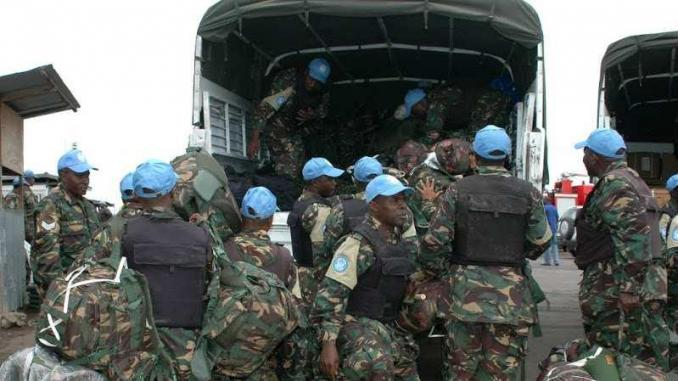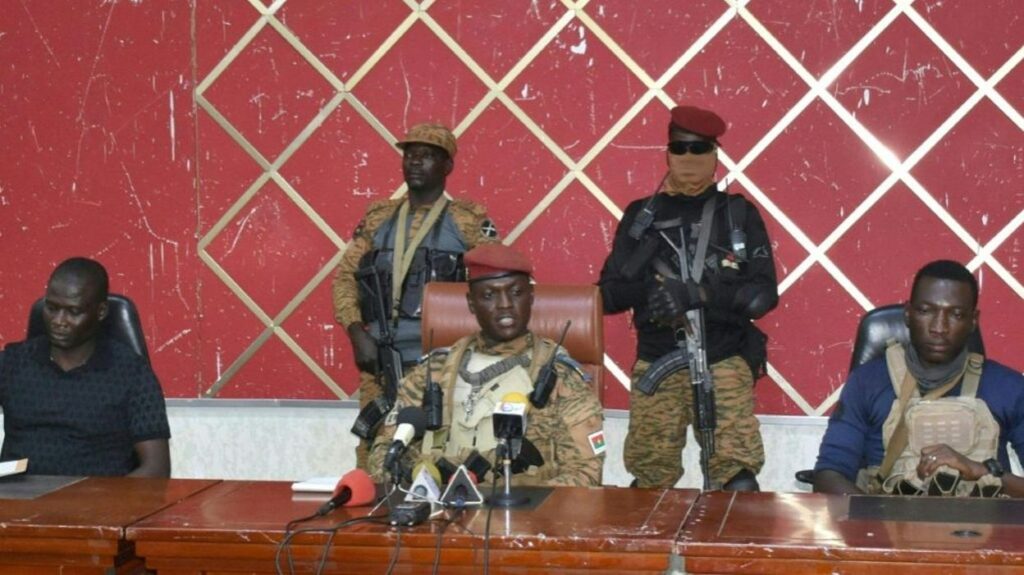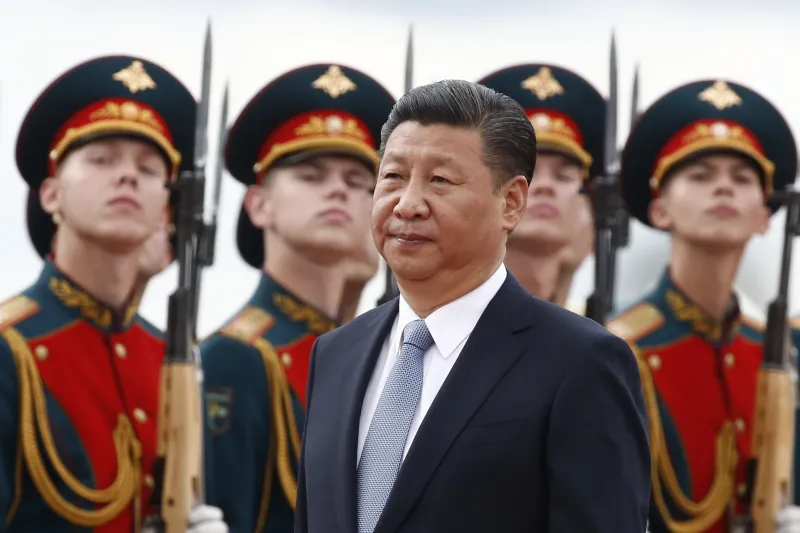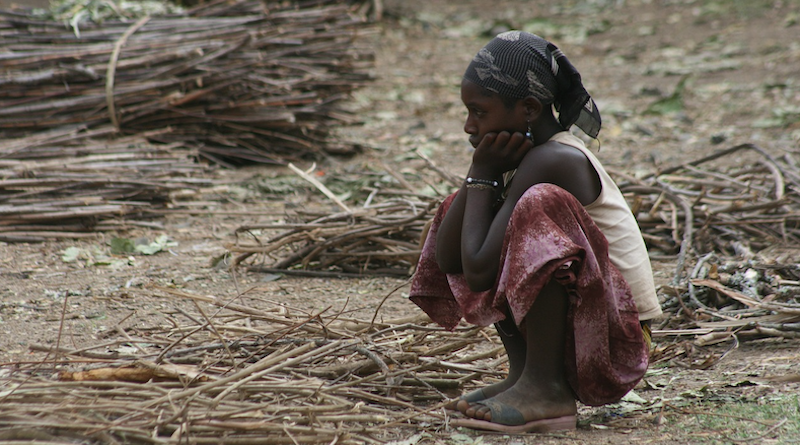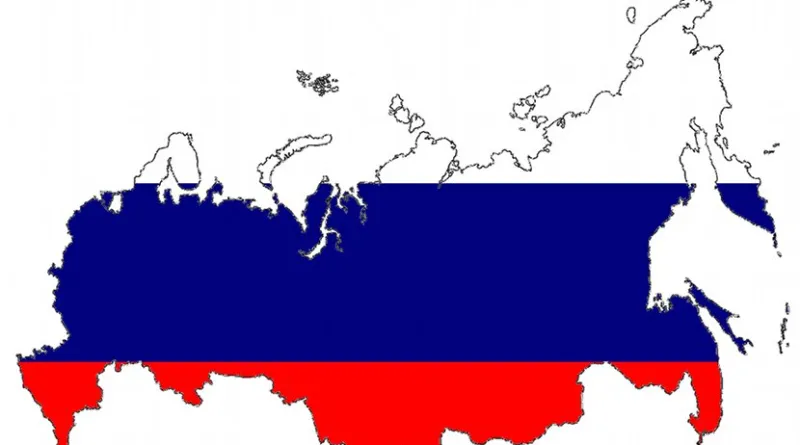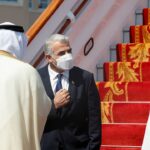
To contain what it perceives as an Iranian threat, Israel is seeking greater military cooperation with Gulf Arab states, even speaking of a “Mideast NATO”. But such talk appears premature at best.
There is no mistaking Israel’s eagerness. It has been developing below-the-radar bilateral security relationships with Bahrain, Oman, Qatar, Saudi Arabia and the United Arab Emirates (UAE) for some time, hoping to establish an explicitly anti-Iran defence alliance. It has repeatedly sounded the alarm about Iran’s increasing influence in the Middle East, as well as its collaboration with non-state armed actors such as Hizbollah in Lebanon, the Huthis in Yemen and the Popular Mobilisation paramilitaries in Iraq. It is even more concerned about Iran’s nuclear program, and it will remain so regardless of whether U.S. and Iranian negotiators succeed in reviving the 2015 deal constraining Iran’s nuclear activity. If the deal is restored and sanctions are lifted, Israel fears that Tehran will gain access to significant new funds to further project its power in the region. If the agreement falls apart, it will enhance the prospect of Iran acquiring a nuclear bomb, which would shake up the military balance in the region and beyond. At present, Israel’s nuclear capabilities, which it has never publicly acknowledged, make it the only nuclear weapons state in the Middle East.
Against this backdrop, Israeli officials and parts of the Israeli media presented President Biden’s visit in July as an endorsement of an Israeli-Gulf Arab military alliance, even suggesting that an agreement on a joint air defence system was imminent. But Israel’s ambition seems to go too far for the Gulf states, which declined to give a lift to Israel’s hopeful messaging.
Yes, ties between Israel and the Gulf states are growing stronger. The UAE and Bahrain have been rapidly normalising their relations with Israel since signing the Abraham Accords, which paved the way to full diplomatic ties, in 2020. Israel’s former prime minister, Naftali Bennett, visited Bahrain in February and the UAE in June; Israel concluded its first free trade agreement with an Arab country with the UAE in May (and has started free trade talks with Bahrain); and tourists have been travelling in both directions. Israel agreed to sell an air defence system to the UAE and unmanned aircraft and anti-drone systems to Bahrain. A senior official at the Bahraini foreign ministry also confirmed that Israel’s Mossad is “present” in the kingdom, engaged in intelligence cooperation.
But there are limits. Abu Dhabi and Manama share the view of other Gulf capitals that military alliance with Israel against Tehran would carry too great a risk of provoking a war with Iran, with only limited benefits. Hence, they are expressly distancing themselves from anything that would put them at loggerheads with Iran. They will likely stay this course whether the nuclear deal talks succeed or fail.
Israel’s Push for Regional Military Cooperation
A military alliance with Gulf Arab states is the third pillar of Israel’s strategy for countering Iran’s power projection in the Middle East. The first pillar is the development of a credible military option for dealing a body blow to Iran’s nuclear program; in coordination with the U.S., Israel is pushing to shore up this pillar, since, to date, the Biden administration has made clear that the U.S. will use force only as a last resort. The second comprises efforts to undermine Tehran’s nuclear and ballistic missiles programs – including through concerted international economic pressure and Israeli covert and cyberattacks on Iranian installations, as well as assassinations of key Iranian personnel.
As for the third pillar, Israeli officials see it as serving multiple purposes. By coaxing the Gulf Arab countries into a military alliance, Israel would primarily aim to establish a collective air defence system, building on the allies’ pooled military capabilities, and affording three specific benefits. On a strictly military level, it would gain access to sensors located in the Gulf states, which would allow Israeli commanders more time to scramble a response to any Iranian attack. Secondly, the formation of an alliance would reinforce the notion that Israel’s military options are multiplying, strengthening its deterrence posture. In the words of an Israeli security official, “Iran needs to see Israel and its regional allies coming right up to its borders, to see us more united, including with the West. Regional military cooperation will help us with this”. Lastly, the alliance would augment the political coalition behind the doctrine of isolating Iran, not just globally but now also within the Middle East itself.
” Israel sees benefit in advertising that [a military] alliance [with the Gulf Arab states] is already emerging, and in projecting expectations beyond what currently appears realistic. “
Indeed, Israel sees benefit in advertising that such an alliance is already emerging, and in projecting expectations beyond what currently appears realistic. Israeli officials took the opportunity of Biden’s July visit to proclaim, in statements amplified by local media, that the Gulf Arab states would shortly start building the joint air defence system. The officials appear to believe that the publicity helps Israel borrow against one of the intended benefits of the alliance, by suggesting that Israel is accumulating options for countering Iran. Domestic politics seem to have added impetus to this approach. With elections due in November, caretaker Prime Minister Yair Lapid, whom the opposition has branded incompetent in terms of defence and security, wants to portray himself as capable in that realm. He has all the more reason to play up the prospect of regional military cooperation because one of his leading rivals, Benjamin Netanyahu, could not close such a deal while he was prime minister from 2009 to 2021.
Despite the high expectations set by his hosts, Biden made no concrete announcement on the alliance during his time in Israel in July, and the idea received an even chillier reception from Gulf Arab state officials. On the sidelines of Biden’s subsequent trip to Saudi Arabia, Anwar Gargash, diplomatic adviser to the UAE’s leader, said: “We are open to cooperation, but not cooperation targeting any other country in the region and I specifically mention Iran”. At a press conference, Saudi Foreign Minister Prince Faisal bin Farhan Al Saud likewise rejected the idea of an “Arab NATO” and said Saudi Arabia was not involved in any deliberations about such an alliance. He added later that the kingdom had extended its hand to Iran and that talks to date were positive, even if they had not yet yielded results. Consistent with the foreign minister’s remarks, a senior official in Riyadh privately dismissed the idea of a Middle East alliance bringing together Israel and Gulf Arab states, underlining instead the importance of keeping open channels with Iran.
A New Approach to Iran?
Saudi Arabia and the UAE, which have traditionally taken tougher stances on Iran than their Gulf neighbours, are the two states that have most noticeably modified their approach to Tehran. The Emirati and Saudi positions on Israel’s proposal reflect a policy reorientation that has occurred over the past decade, as Riyadh and Abu Dhabi have increasingly come to view the U.S., their traditional security guarantor, as unreliable. In part, this reorientation owes to the decline in U.S. power relative to rising actors like China. It also reflects conclusions drawn during President Donald Trump’s tenure about what the U.S. would and would not do for the Gulf monarchies. Trump’s “maximum pressure” campaign, aimed at bringing Iran to heel through economic coercion and sometimes military pressure, ratcheted up tensions in the region at the same time that the U.S. was making clear its reluctance to come to its Gulf partners’ defence militarily. The Gulf states accordingly developed a heightened sense of vulnerability to retaliation should Iran come under U.S. or Israeli attack. Most worrying for Riyadh and Abu Dhabi was the Trump administration’s tepid response when parties probably linked to Iran attacked Saudi Aramco oil facilities as well as commercial vessels in Gulf waterways in 2019. Likewise, Gulf states were alarmed after the U.S. launched an attack that killed Major General Qassem Soleimani, the leader of the Islamic Revolutionary Guard Corps’ Qods Force, with apparent disregard for how Tehran might retaliate in the Gulf. More recently, the UAE was outraged when the Biden administration all but ignored Huthi drone strikes against Abu Dhabi in January 2022.
The UAE and Saudi Arabia thus concluded that they had to find ways to better provide for their own security. While they still perceive Iran as a threat, and still engage selectively in military action – mainly through proxies – to push back Iran-aligned groups in conflict zones like Yemen, they have decided to add diplomatic engagement to their toolkit. (They have done the same with other regional competitors such as Türkiye.) As a senior official in Riyadh put it, “You don’t just pursue diplomacy with your friends”.
In the aftermath of the shipping attacks in mid-2019, Crown Prince Mohammed bin Zayed of the UAE, who has since become his country’s ruler, dispatched several senior security officials, including eventually his brother and the UAE’s national security adviser, Sheikh Tahnoun bin Zayed, in October 2019, to Tehran for talks to discuss maritime security and help quell tensions. The two countries expanded their dialogue in early 2021, culminating in several high-level visits from Emirati officials, including another visit from Sheikh Tahnoun to Iran at the end of that year. In August 2022, the UAE announced full restoration of its ties with Iran, naming an ambassador to Tehran for the first time in six years.
In rough parallel, the Saudi leadership had launched its own initiative the preceding April, sending its intelligence chief to meet with an Iranian delegation in Baghdad, the Iraqi capital. To date, Saudi and Iranian intelligence and security officials have met five times for talks, most recently in April 2022, focused on regional security concerns, including the war in Yemen.
” As Gulf Arab leaders try to lower the temperature with Iran, they do not see joining an anti-Iran military alliance with Israel as aligning with their interests. “
As Gulf Arab leaders try to lower the temperature with Iran, they do not see joining an anti-Iran military alliance with Israel as aligning with their interests; they worry, indeed, that it could seriously harm them. They are particularly concerned that what they view as Israel’s confrontational approach toward Iran will invite Iranian retaliation in which they might become collateral victims. A Saudi official stressed that “Saudi Arabia does not want war or confrontation with Iran. Absolutely not. And the last thing we want is to be caught in the middle of a war between Israel and Iran”. For its part, Tehran has made clear that while it will tolerate Gulf Arab states’ normalisation of relations with Israel, it will act militarily if they allow Israel to use their territory for military or intelligence operations aimed at Iran.
There are also domestic political considerations. Gulf Arab governments might face domestic backlash if they were to get too close to Israel too quickly. Public support for tighter bonds with Israel is low to non-existent, according to recent polling conducted by the Washington Institute for Near East Policy. Popular support for Palestinian statehood remains high in Arab countries, including in the Gulf. But while the Palestinian issue may no longer be the primary obstacle to normalising relations with Israel among Gulf state leaders – who worry more about normalisation’s impact on tensions with Iran than how it will play with the public – these leaders cannot entirely dismiss it, either.
Against this backdrop, the UAE’s preferred approach is to balance its relations with Iran and Israel. Abu Dhabi will thus build economic, technological and security ties short of a military alliance with Israel, while at the same time enhancing economic cooperation with Iran. In the last Iranian fiscal year (ending 31 March), the Emirates replaced China as the top exporter of manufactured goods to Iran, supplying 68 per cent of its non-oil imports. This approach seems to be working so far, but as the Huthi missile fire at Abu Dhabi in January showed, the UAE remains vulnerable to attack from the Iran-aligned corner of the region.
Saudi Arabia is also trying to balance its informal security and economic ties with Israel with dialogue efforts with Iran. When asked about normalisation with Israel during the Biden visit in July, Adel al-Jubeir, the Saudi minister of state for foreign affairs, tied it to resolution of the Palestinian issue, citing the Arab Peace Initiative that Riyadh sponsored in 2002. In this initiative, the signatory Arab countries offered normalisation with Israel in exchange for Israeli withdrawal from the territories occupied in 1967, a “just settlement” for Palestinians made refugees in 1948 and establishment of a Palestinian state with its capital in East Jerusalem. Saudi Foreign Minister Prince Faisal bin Farhan has also dismissed questions about moving toward normalisation during the Biden visit. King Salman is said to oppose normalisation. In March, however, his son Crown Prince Mohammed bin Salman, who is now prime minister, took a somewhat softer line, telling a reporter: “We look at Israel as a potential ally but before that it should solve its problems with the Palestinians”. Quiet security cooperation between Saudi Arabia and Israel has been taking place for decades. It will likely continue under the radar for now. Meanwhile, Riyadh will keep talking to Tehran about how to lower the temperature in the Gulf.
Israeli Persistence
Despite Gulf Arab reticence, Israel has not given up pursuing what it refers to as a “Mideast NATO”. A significant number of senior Israeli officials appear to believe that Gulf states like the UAE will change their position over time, especially if the Iranian threat grows. They seem intent on helping this process along by trying to persuade the Emiratis and others that combining means of defence, for example by giving the Gulf militaries access to Israeli radar technology as part of a joint air defence system, would be of mutual benefit. Israeli officials stress that they do not seek to drag Gulf countries into a military clash with Iran. “We don’t ask them, nor do we need them, to be in direct confrontation”, said a senior official. But what Gulf leaders are worried about is that a conflict between Israel and Iran may blow back on the Gulf states whether or not Israel intends it. Gulf Arab states share concern that a “Mideast NATO” will make Israel less conflict-averse and Iran more aggressive, increasing their exposure to Iranian retaliation, especially if they have normalised relations with Israel.
Other Israeli officials project a more realistic view of Gulf Arab states’ intentions, but they appear to be a minority. Some have told Crisis Group of their impression that Gulf governments share Israel’s concerns about Iran’s growing military power, but lack, in the words of one official, “any alternative but to pursue a dialogue with Tehran”. They note that Gulf states are particularly hamstrung because they have no capability of their own to deter Iran militarily. These officials understand that a regional alliance would not necessarily help the Gulf states in this respect, because neither Israel nor its Western allies would give them sufficient deterrent capabilities, especially absent a change in the qualitative military edge doctrine. (This longstanding doctrine – to which the U.S. and most European countries remain committed – posits that these powers will support Israel in keeping a military and technological advantage over its neighbours.) Moreover, a military alliance would not banish the risk to Gulf Arab states of a military confrontation with Iran, because “Israel will never be a military umbrella for the region”, as a senior Israeli official put it.
What Comes Next?
Israel intends to keep pushing for enhanced regional military cooperation as a bulwark against Tehran’s power projection and nuclear threat. In light of Gulf Arab resistance to joining an anti-Iran military alliance, its only alternative venue for bridge-building appears to be the U.S. Central Command, or CENTCOM. CENTCOM affords Israel for the first time a seat at the same table with officers from regional militaries, along with their U.S. counterparts. Through CENTCOM, Israel is able to participate in regional meetings and exercises without exposing Gulf Arab governments, especially those that have not normalised relations with Israel, to domestic criticism, while also reinforcing its security dialogue with the U.S. In addition, it provides a platform for Israel – through new contacts it might establish – to develop bilateral military ties with Gulf Arab states. For example, in March, CENTCOM Commander General Frank McKenzie hosted a meeting in Egypt for the military chiefs of staff of Israel and regional countries, including Saudi Arabia and Qatar, neither of which has made a move toward normalising ties with Israel.
Still, there is virtually no prospect that this platform can give rise to a “Mideast NATO” – something the Gulf Arab states simply do not want. As they steer clear of joining a military alliance that targets Iran, these states are also continuing to pursue diplomacy with Tehran. Senior officials in Riyadh, Abu Dhabi and Doha are also making clear that they will do so regardless of the Iran nuclear talks’ fate. Having lived through the maximum pressure campaign and in some cases suffered its blowback effects, they are already preparing for the possibility that regional tensions will rise because the nuclear talks break down, or due to a change in U.S. leadership in the 2024 elections or for other reasons. Should such a scenario arise, they believe they will be better positioned to weather it if they focus now on maintaining, and perhaps even expanding, channels of communication with Iran – rather than joining Israel in a confrontational security arrangement that risks backfiring on them.


